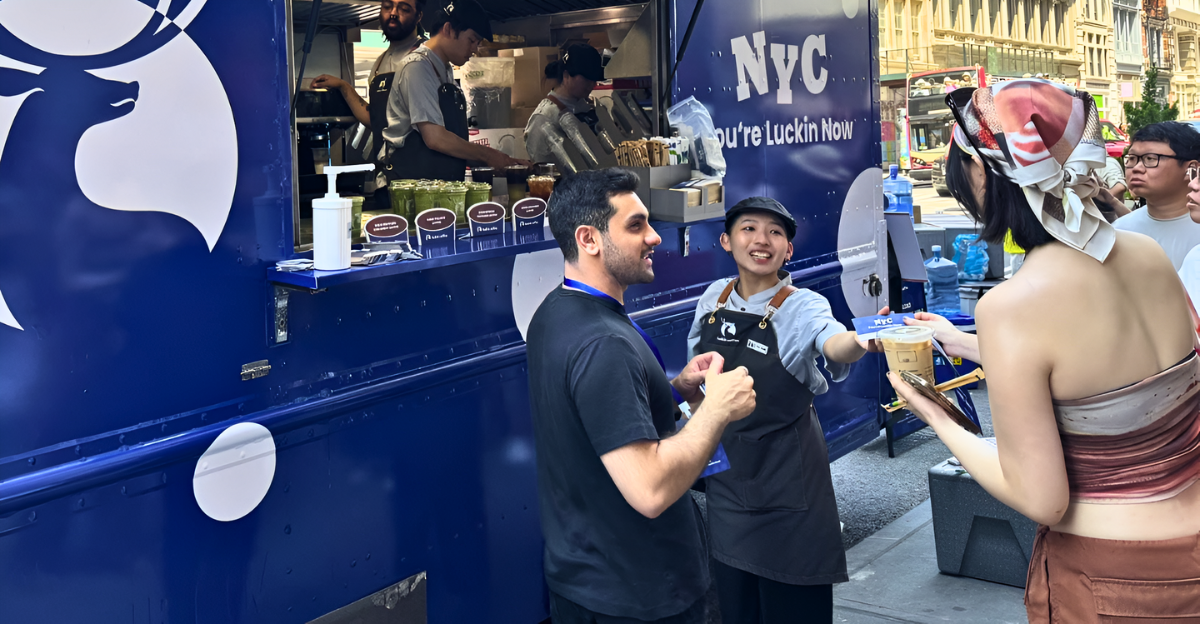
China’s Luckin Coffee, the Chinese coffee chain that overtook Starbucks in its home market, has officially landed in the U.S., opening its first two American stores in New York City. The brand debuted one location in Greenwich Village and another in Chelsea this week, catching consumers and competitors by surprise. Social media buzzed as curious New Yorkers lined up for promotional deals, and one fan even drove 22 hours from Florida to be first in line.
On Instagram, the company proclaimed, “This is just the beginning. NYC, we’re here”. Analysts say this move could shake up the U.S. coffee scene.
Why Luckin is Expanding Now
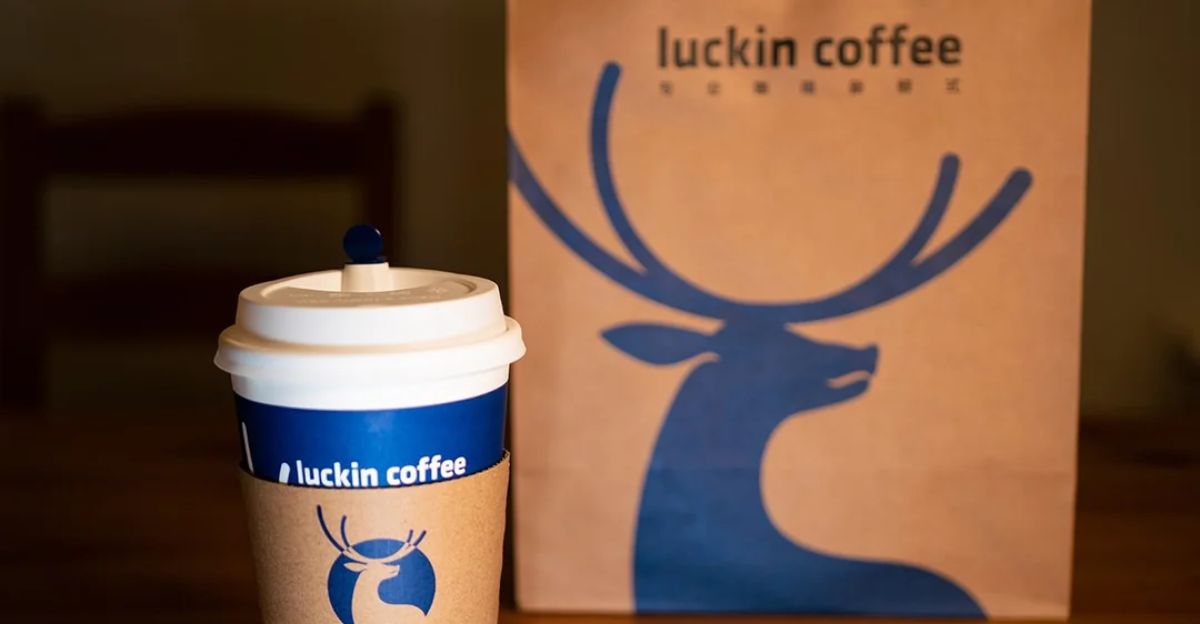
Luckin’s U.S. debut follows explosive growth in Asia. Since its 2017 launch, the Beijing-based chain has ballooned to over 24,000 stores across China and Southeast Asia. It built a massive customer base (about 120 million app users) by running minimalist, mobile-only outlets and aggressive pricing: CBS News notes Luckin’s drinks were roughly 30% cheaper than comparable Starbucks beverages in China.
After weathering a 2020 accounting scandal, Fox Business reports the company recently saw quarterly revenue jump 41% year-over-year. Its fast-growth, tech-driven model has given Luckin the confidence to target the U.S. market now.
Local Coffee Fans Swarm the New Shops
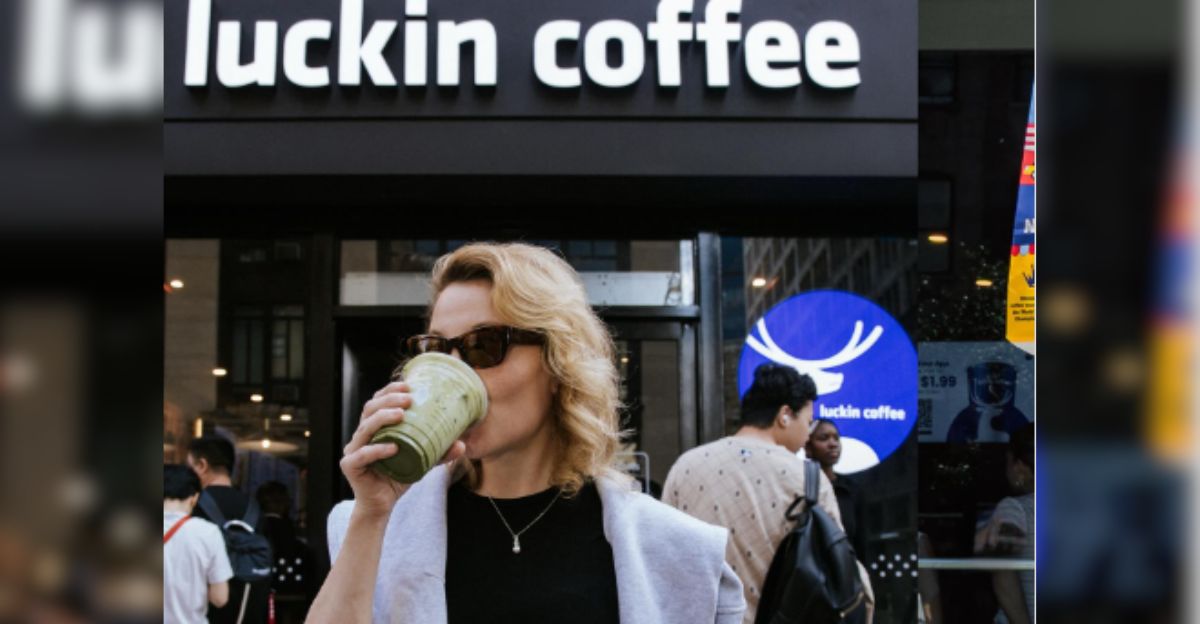
New Yorkers have already felt the buzz of Luckin’s arrival. Media reports say both new Luckin stores have steady crowds: one Manhattan resident told Fox Business that the “shops were buzzing with people” during opening week. Early promotions and low prices have driven long lines, and in fact, the Luckin locations even ran out of oat milk and other plant-based milks amid constant demand.
Many customers are snapping up Luckin’s signature fruit and matcha beverages, shifting some routine purchases toward the newcomer.
Fast-food Chains and Cafes Respond
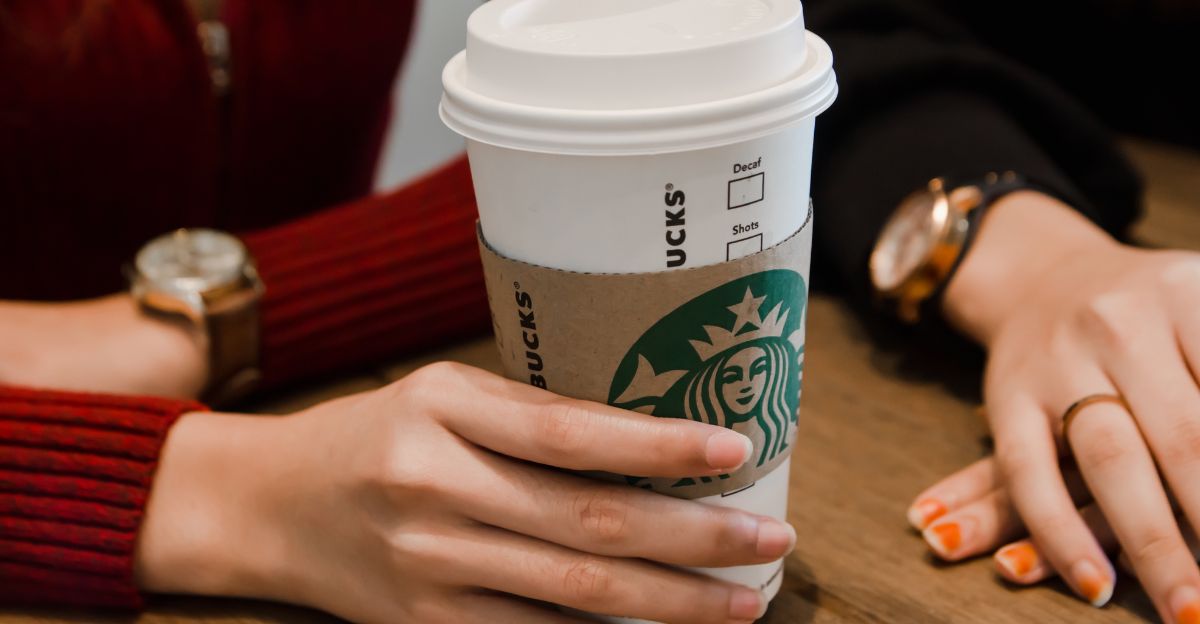
American coffee chains are taking notice. Starbucks, in particular, is already adjusting its strategy under new CEO Brian Niccol. In late 2024, Starbucks rolled out a “Back to Starbucks” plan to streamline its menu, speed up service and redesign stores to encourage loyalty. Across the industry, brands are competing for younger drinkers: Luckin’s launch coincides with U.S. competitors like Starbucks and Dutch Bros courting Gen Z with flashy promotions and app perks. Business Standard reports that Luckin itself is now using social media giveaways and gamified app rewards (even contests to win free coffee) to attract customers, mirroring the tactics of its rivals.
Shifts in Drink Trends
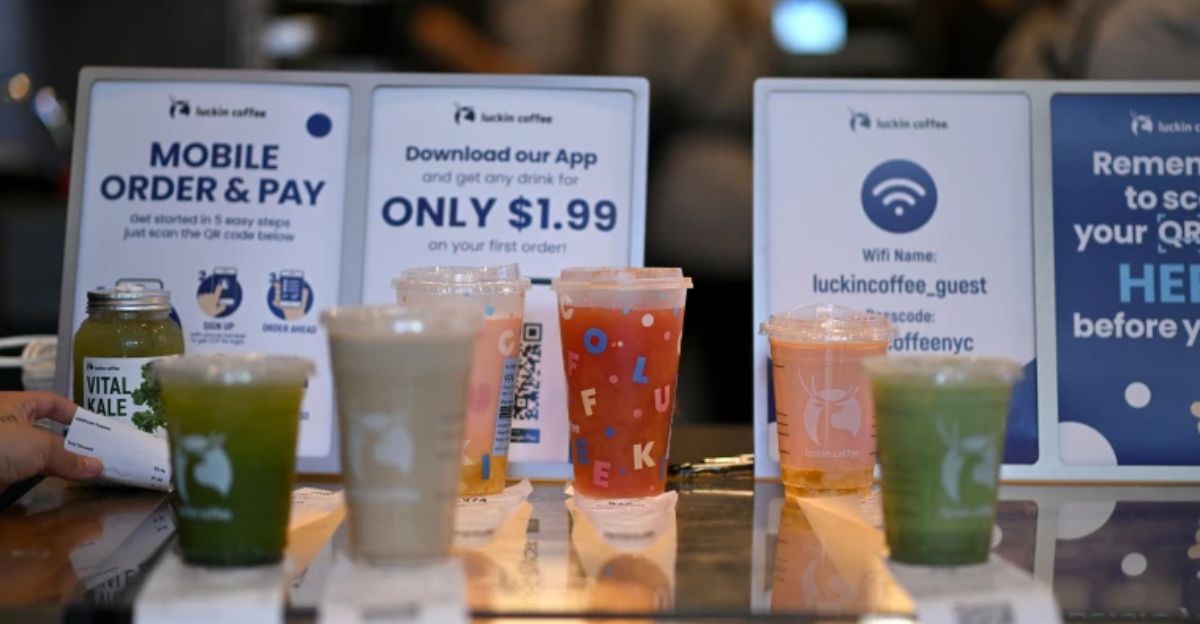
Consumers may broaden their beverage choices. Luckin’s menu isn’t limited to basic coffee – it offers matcha lattes, fruit-infused cold brews and coconut-milk “refreshers,” plus pastries and sandwiches. For example, Business Standard highlights Luckin’s colorful iced fruit drinks and a variety of breakfast snacks (banana yogurt loafs, croissants, etc.) as part of its appeal.
This variety, combined with Luckin’s affordable plant-based milk options, could steer some Americans toward iced tea lattes or novelty coffees they hadn’t tried before. In other words,
Global and Trade Implications
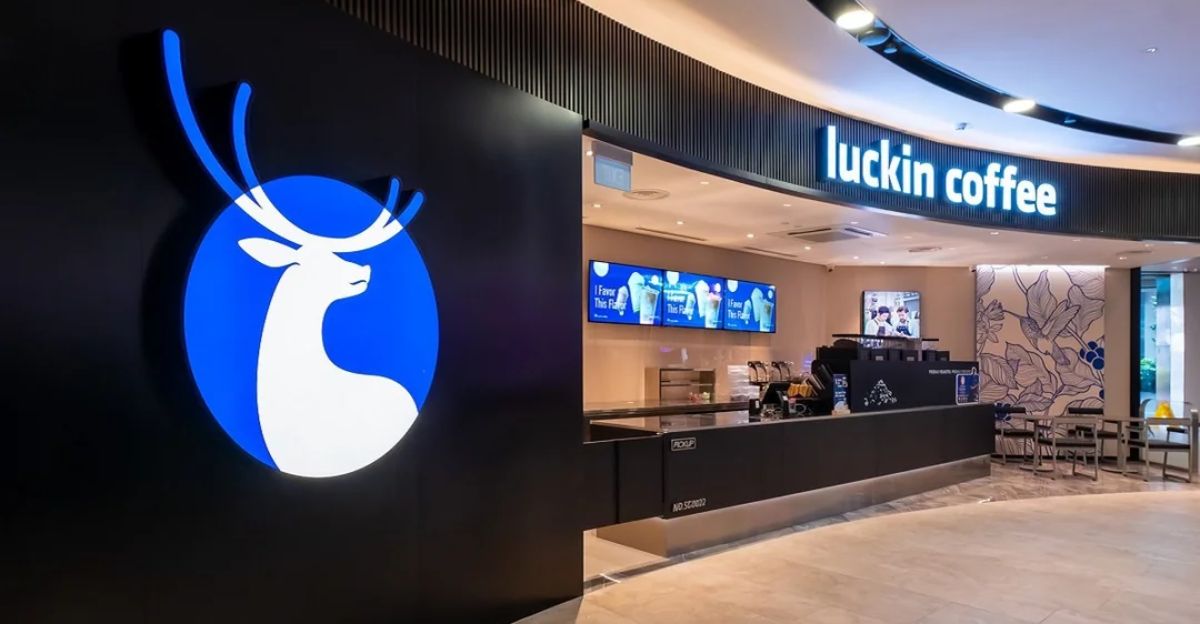
Luckin’s U.S. entry also has international implications. The company’s co-founder has said it will “adopt flexible, locally tailored models” for overseas growth, signaling more expansion is possible. If Luckin’s U.S. venture succeeds, it could reshape imports: U.S. distributors might see more Chinese tea beverages or snack imports, while coffee producers could find a new export market in China.
The move may even encourage other Chinese food and beverage brands to test American markets, further entwining U.S.-China consumer trade.
Experts’ Warnings
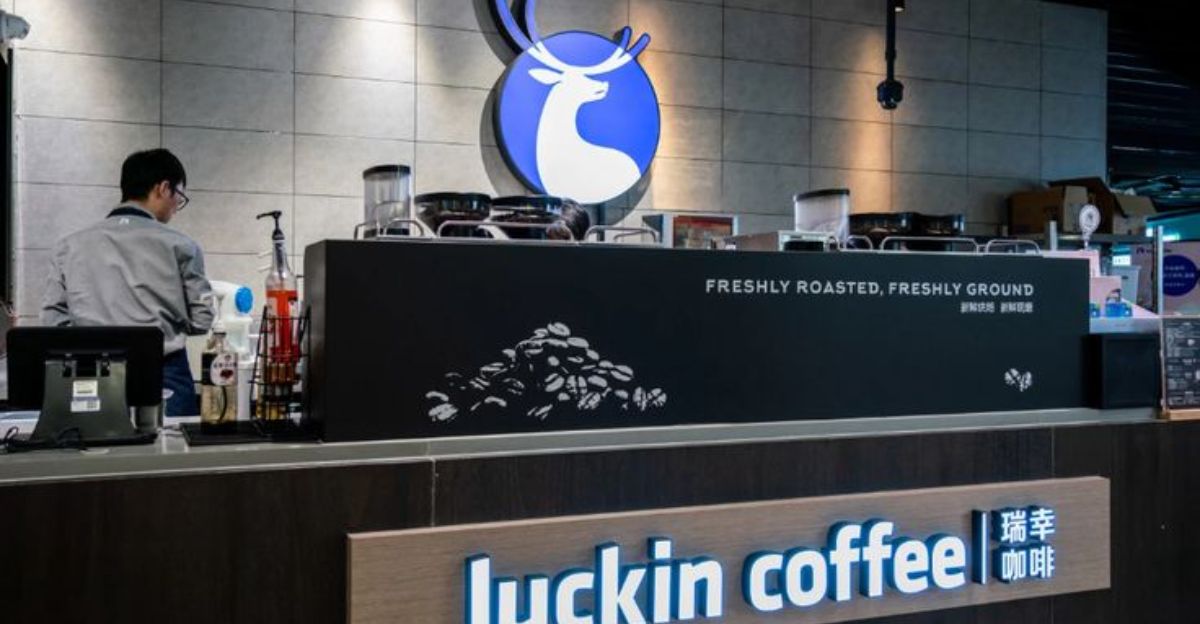
Some industry watchers urge caution. In China, Luckin became market leader by undercutting Starbucks, offering cups for as little as RMB 9.9 ($1.40) – but replicating that bargain model in the U.S. is tough. A food industry consultant notes that labor and rent costs are much higher here, so “the low-cost model doesn’t hold up”. Indeed, she points out that another Chinese tea chain tried rapid U.S. expansion and had to close its stores when steep coupons proved unsustainable.
Luckin’s current $1.99-per-drink promotions may be a short-lived tactic: once prices normalize, its Chinese prices advantage vanishes, putting pressure on its margins.
Regulatory Spotlight
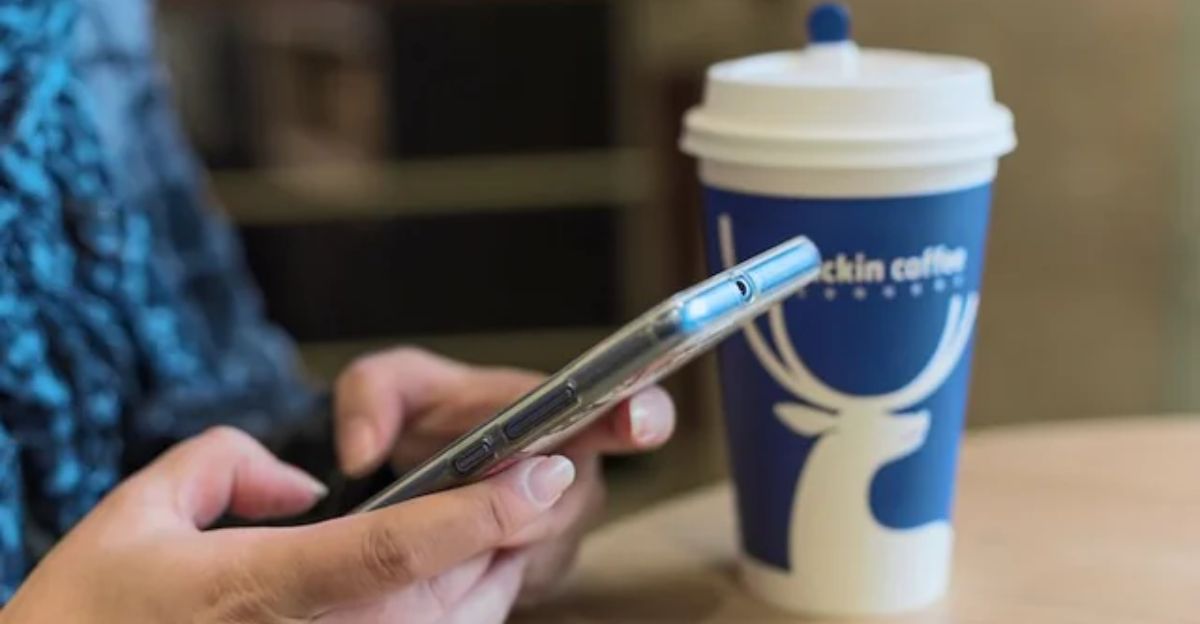
American regulators are already paying attention. New York, for instance, enacted a law in 2020 forbidding cashless-only businesses in stores to protect consumers. That rule directly impacts Luckin’s app-only ordering model; it has frustrated some customers who must download an app or pay by phone. Other U.S. cities like San Francisco have similar laws ensuring cash is accepted.
Lawmakers who scrutinize Chinese investments may also start taking a closer look at Luckin’s data practices and expansion plans.
What Coffee Lovers Can Do
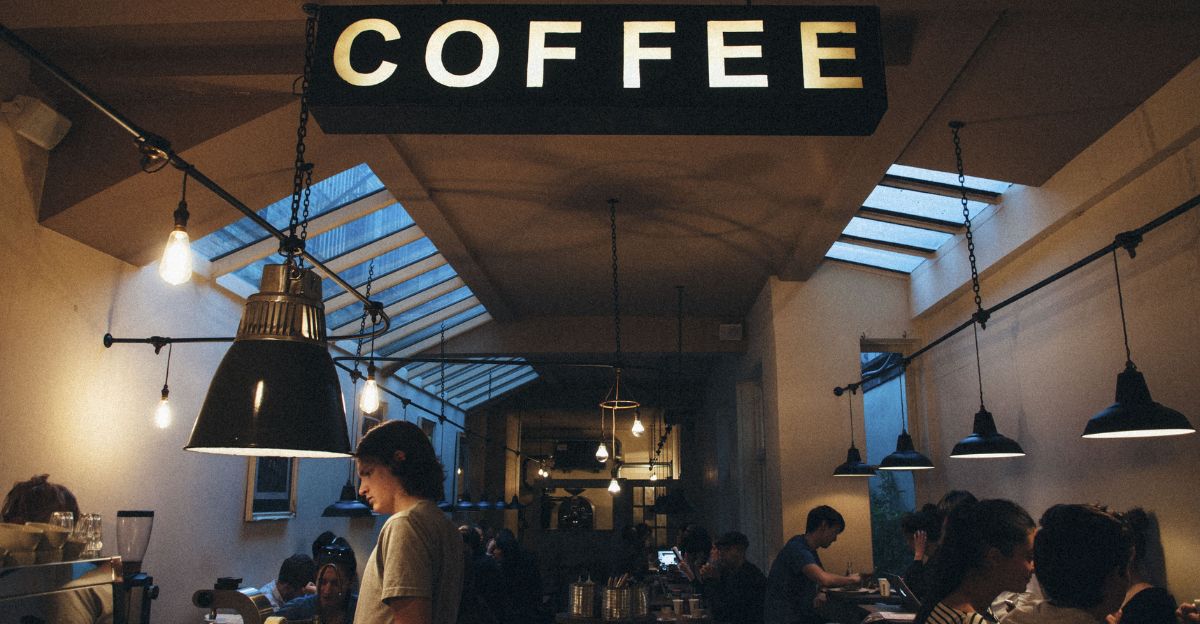
For consumers, the new competition can be a boon. Coffee drinkers should compare deals: grab those Luckin launch promotions or free-coffee contests on its app while they last. Starbucks and other chains will likely counter with their own offers (bonus loyalty points, special flavors or discounts). Consider stocking up on favorite beans or using a better home brewer – investing in a quality French press or espresso machine can save money if café prices rise.
Also, explore new drinks: try Luckin’s unique fruit teas or oat-milk lattes and see if they suit your taste. In short, stay flexible in your routine and watch for specials.
Your Coffee Ritual Changed
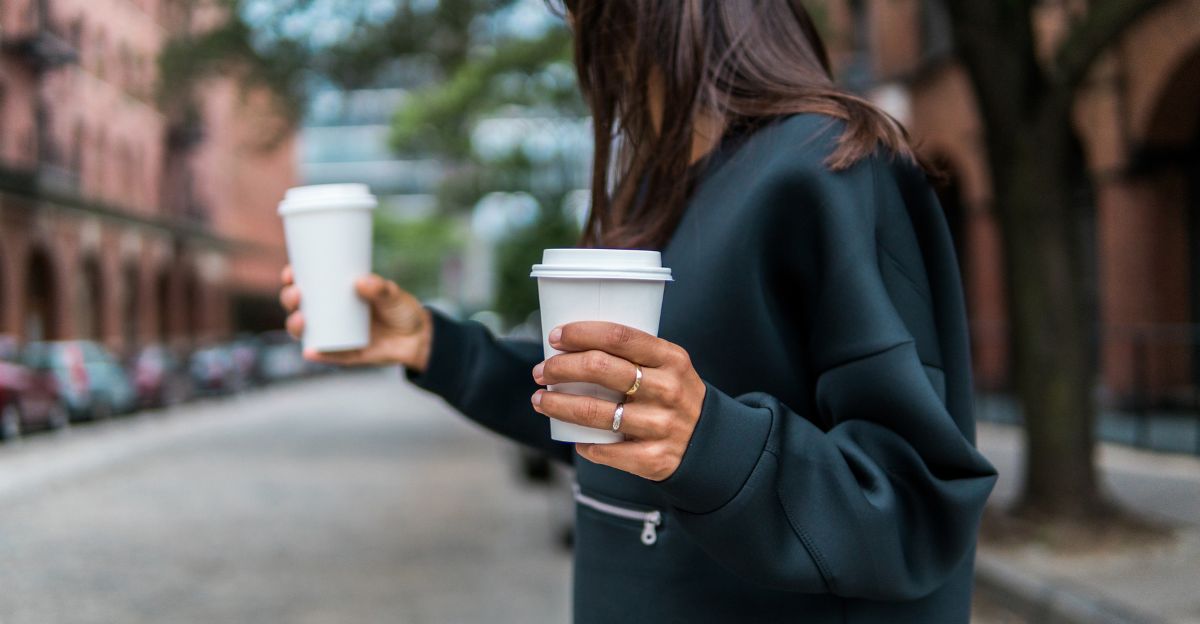
What started as a curiosity about a Chinese coffee chain now has the potential to reshape America’s coffee habits. Remember, Americans drink roughly 400 million cups of coffee every day, so even a small shift in price or taste can ripple through that massive market. If Luckin’s tech-savvy, low-price approach catches on, your usual latte might get cheaper or sweeter – or inspire Starbucks and Dunkin’ to sweeten their own deals to keep you as a customer.
In any case, the debut of this one New York café could influence your entire morning routine and budget. From Brooklyn to Boise, one cup at Luckin might just change the whole coffee game.